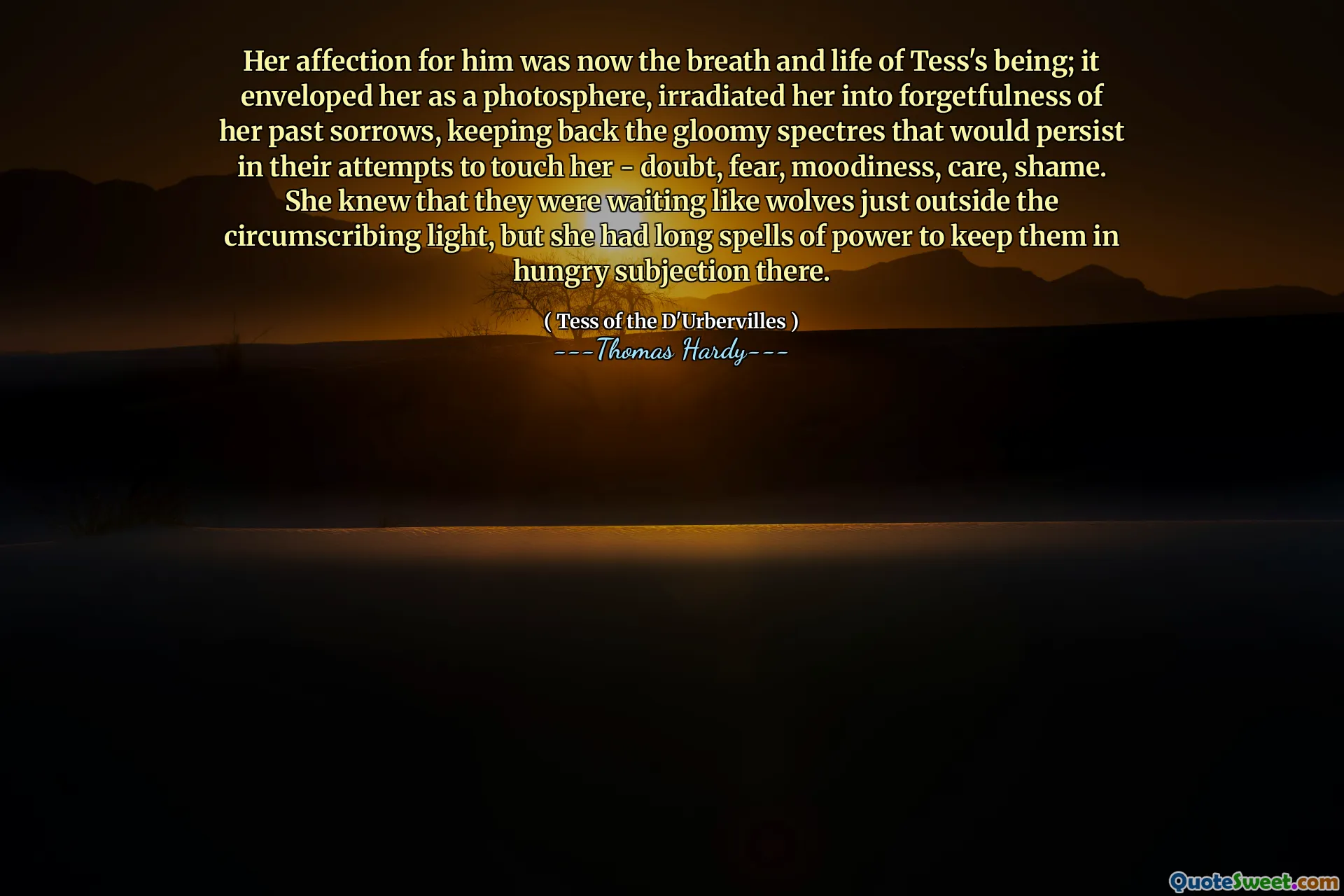
Her affection for him was now the breath and life of Tess's being; it enveloped her as a photosphere, irradiated her into forgetfulness of her past sorrows, keeping back the gloomy spectres that would persist in their attempts to touch her - doubt, fear, moodiness, care, shame. She knew that they were waiting like wolves just outside the circumscribing light, but she had long spells of power to keep them in hungry subjection there.
This quote vividly captures the transformative power of love and emotional intimacy in shaping an individual's inner world. Tess's affection for him acts as a vital force, breathing life into her very existence and creating a protective barrier against the shadows of her past. The imagery of a photosphere portrays love as a radiant, enveloping light that not only illuminates her present but also isolates her from negative feelings such as doubt, fear, and shame—emotions that linger threateningly outside her mental boundaries, like wolves lurking outside a circle of light. Hardy’s depiction emphasizes how love can serve as both a sanctuary and a shield, enabling individuals to temporarily transcend their internal and external struggles. The metaphor illustrates the powerful role that emotional bonds play in mental resilience, especially for someone like Tess, who has suffered deeply and faces ongoing internal battles. It highlights the fragile yet potent nature of such protective love, which requires constant effort to maintain against persistent internal ghosts. The idea that she maintains long spells of power to keep these fears at bay resonates with themes of endurance and the ongoing struggle for emotional stability amid life's inevitable hardships. This portrayal underscores the human capacity for resilience through connection and affection, reminding us that love often functions as both a refuge and a battleground in the ongoing fight to preserve one’s sense of self amid adversity.






